Learn how to maximize the food you buy and make—and waste less food—with this guide to freezing food. Find tips on freezing raw and cooked food, thawing frozen food, and which foods work best to freeze so you have all the information you need in one place.
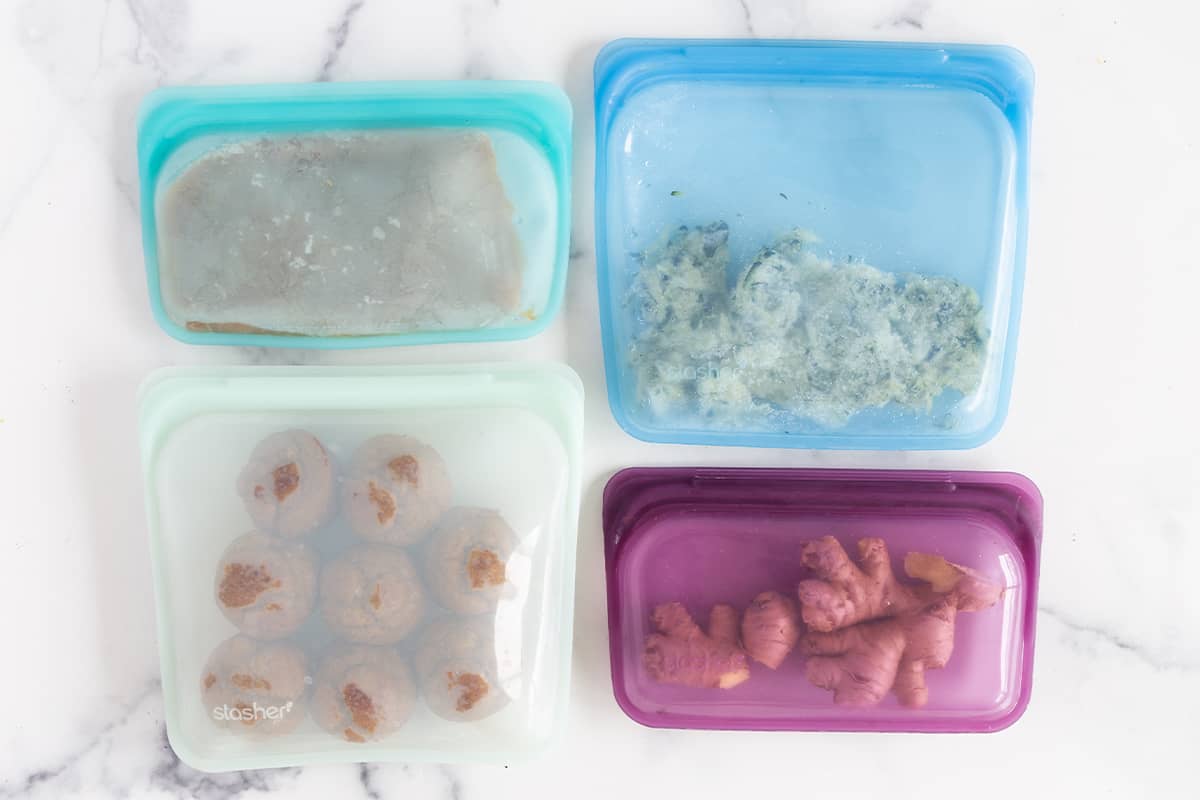
Freezing Food
Ever since becoming a parent, I have relied on my freezer to help me make the most of my time in the kitchen. I regularly freeze fresh food to ensure it doesn’t go bad, and I freeze cooked and prepared food to use in future weeks.
This helps me to keep my food budget in check since we waste less food. It also helps me cook less since I have a freezer stash to rely on.
This guide will take us through the basics of freezing, my favorite freezer containers, tips for freezing produce, tips for freezing prepared and cooked foods, how to thaw foods for best results, and much more.
Table of Contents
- Freezing Food
- Top Foods to Freeze
- Freezing Food Preservation
- Freezing Food Containers
- How to Freeze Food, Step-by-Step
- Frequently Asked Questions
- How to Freeze Apples
- How to Freeze Bananas
- How to Freeze Blueberries
- How to Freeze Peaches
- How to Freeze Strawberries
- How to Freeze Spinach
- How to Freeze Kale
- How to Freeze Tomatoes
- How to Freeze Zucchini
- Tips for Freezing Prepared Food
- How to Freeze Muffins
- How to Freeze Pancakes
- How to Freeze Sandwiches
- How to Freeze Smoothies
- How to Freeze Milk
- How to Freeze Baby Food
- How to Freeze Pouches
- How to Thaw Frozen Food
- Best Tips for Success
Your toddler won’t eat? Help is here!
Sign up for our email updates to get tips and ideas sent to your inbox.
Top Foods to Freeze
- Frozen spinach for to use in Spinach Grilled Cheese, Spinach Pesto, and Spinach Muffins.
- Frozen fresh cauliflower for Strawberry Smoothies and Cheesy Rice.
- Vegetable Broth to use in Pasta in Broth.
- Pesto to use in Pesto Pasta with Peas and Pesto Pizza Rolls.
- Frozen Mirepoix to use in Pastina Soup and Ground Beef Pasta.
- Frozen Apples to use in Cinnamon Apples.
Use the TOC below to jump to each section, or simply scroll and read as you go.
Table of Contents
- Freezing Food
- Top Foods to Freeze
- Freezing Food Preservation
- Freezing Food Containers
- How to Freeze Food, Step-by-Step
- Frequently Asked Questions
- How to Freeze Apples
- How to Freeze Bananas
- How to Freeze Blueberries
- How to Freeze Peaches
- How to Freeze Strawberries
- How to Freeze Spinach
- How to Freeze Kale
- How to Freeze Tomatoes
- How to Freeze Zucchini
- Tips for Freezing Prepared Food
- How to Freeze Muffins
- How to Freeze Pancakes
- How to Freeze Sandwiches
- How to Freeze Smoothies
- How to Freeze Milk
- How to Freeze Baby Food
- How to Freeze Pouches
- How to Thaw Frozen Food
- Best Tips for Success
Your toddler won’t eat? Help is here!
Sign up for our email updates to get tips and ideas sent to your inbox.
Freezing Food Preservation
Freezing food is one of my favorite ways to preserve food because it’s so easy. In most cases, you don’t have to do much to the food to make it ready to freeze and it’s so easy to use it whenever you’re ready.
I love this as a way to store fresh produce that we won’t be able to eat before it goes bad; store partial batches of baked goods for future weeks; store leftovers until we’re ready to eat them; and meal-prep smoothies and to freeze pancakes.
Looking for my favorite Freezer Meals? They’re linked there for you.
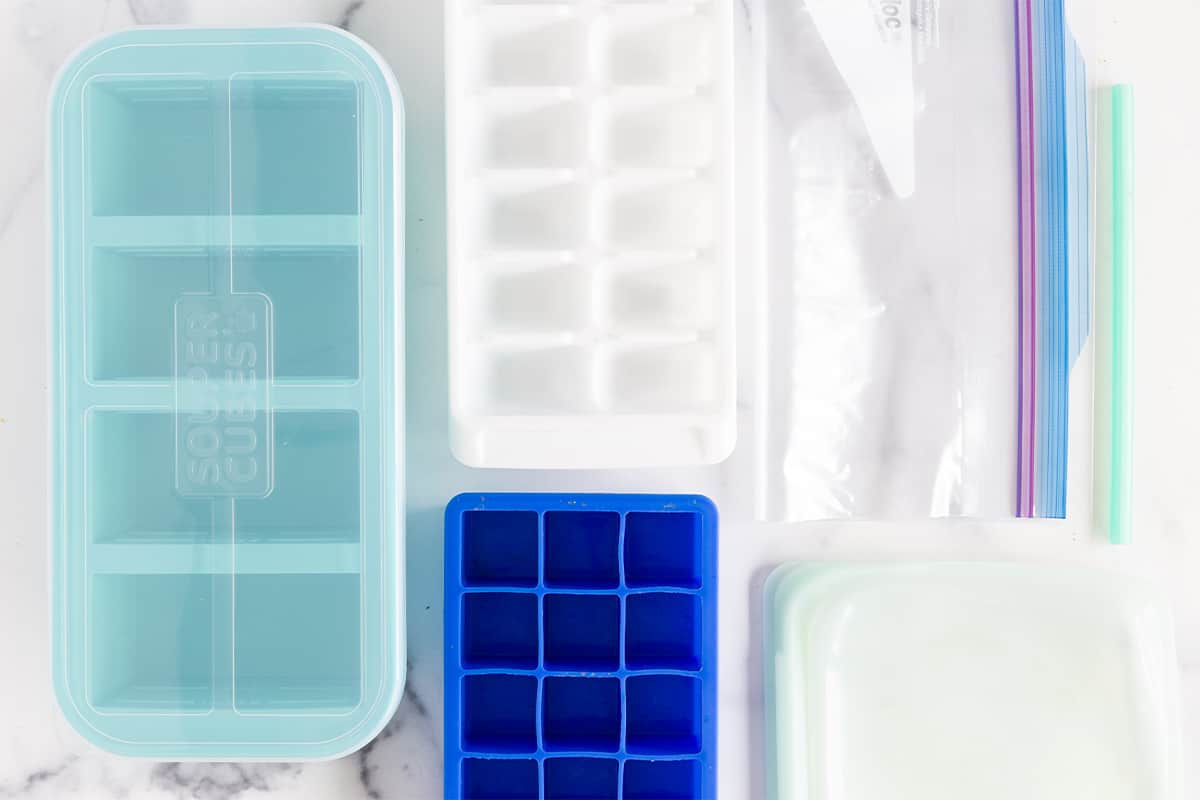
Freezing Food Containers
You don’t need much to freeze food, but a few basic freezer containers and bags can help. These are my favorites:
- Plastic freezer bags: Grocery store freezer bags are remarkably effective, efficient and affordable options for freezing food. I make a DIY vacuum seal by sealing the bag almost all the way, then inserting a straw and sucking out the air and quickly sealing fully. Removing as much air as possible lessens the likelihood of freezer burn.
- Reusable storage bags: Bags from brands like Stasher and Target are great for reusing. It can be more of a challenge to remove all the air from silicone bags since they are thicker and don’t seal as quickly, but do your best to press down the bag to remove air.
- Ice cube trays: You can freeze all sorts of food in an ice cube tray and pop them out for easy use after. Foods that work this way include toddler smoothies, baby food purees, homemade applesauce, broth, marinara sauce, spinach pesto, milk, and more.
- Souper Cubes: This product is a slightly larger version of an ice cube tray that allows you to freeze 1-2 cup portions of foods in a silicone tray. They are really handy for soups, broths, and even mirepoix.
- Freezer-safe food containers: Freezer-safe containers from brands such as Ziploc and Rubbermaid are great for freezing larger portions of soups, stews, chilis, pasta sauces, and more.
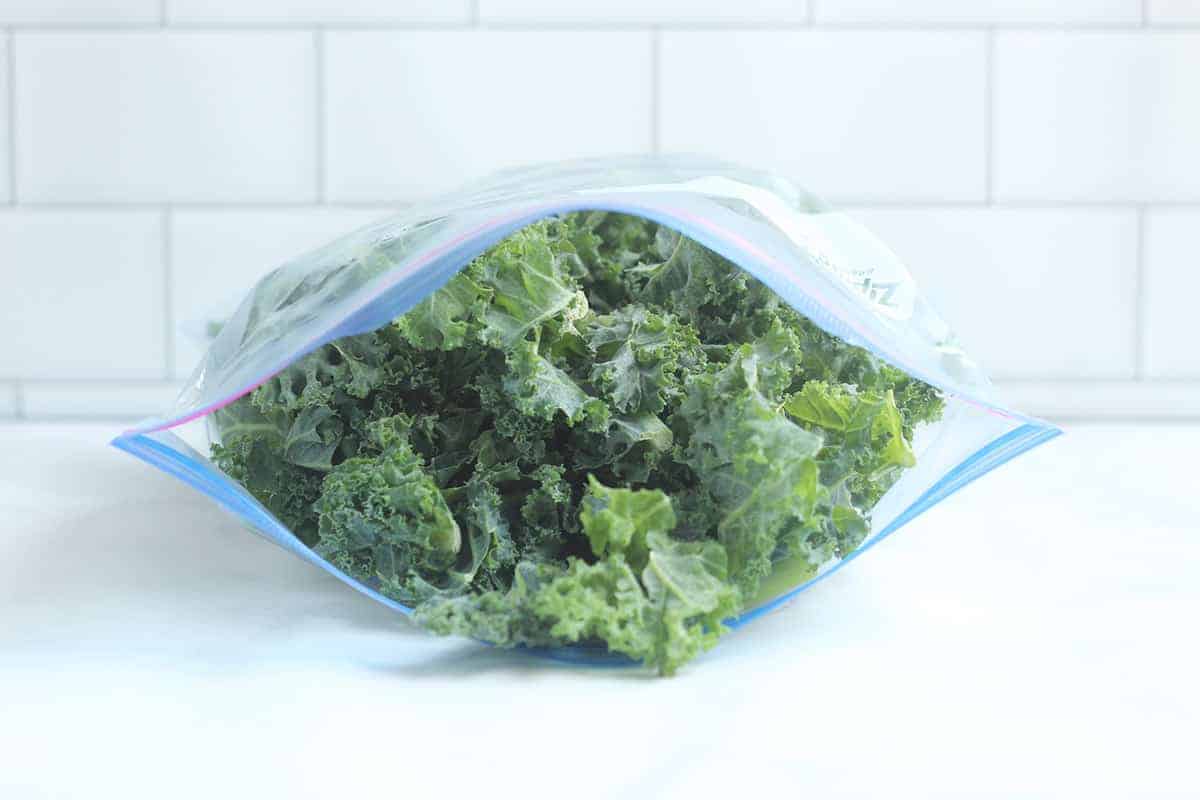
How to Freeze Food, Step-by-Step
Here’s the general process for how to freeze foods so you know what to expect. This will vary slightly according to the food you plan to freeze, so see the more specific info below.
- Wash and dry the food or prepare it according to your recipe.
- Let cool, if needed.
- Add to a freezer bag or container in a single layer. Separate subsequent layers with parchment paper or wax paper, if needed, to prevent the food from sticking together. (If freezing produce, I recommend simply freezing in one flat layer. Remove as much air from the container as you can.
- Freeze until ready to use.
Frequently Asked Questions
You can freeze almost any food. Some foods will not taste great (in terms of texture) once thawed such as lettuce or other fresh greens, cucumbers, eggs in shells, canned foods, and any food that is no longer fresh.
Raw vegetables such as lettuce and potatoes, mayonnaise and eggs in shells, canned foods, and any food that is not fresh should not be frozen.
The length of time you can keep frozen foods depends on the food. The USDA has a chart that may help.
According to the USDA, yes. “Once food is thawed in the refrigerator, it is safe to refreeze it without cooking, although there may be a loss of quality due to the moisture lost through thawing. After cooking raw foods which were previously frozen, it is safe to freeze the cooked foods. If previously cooked foods are thawed in the refrigerator, you may refreeze the unused portion. Freeze leftovers within 3-4 days. Do not refreeze any foods left outside the refrigerator longer than 2 hours; 1 hour in temperatures above 90 °F.”
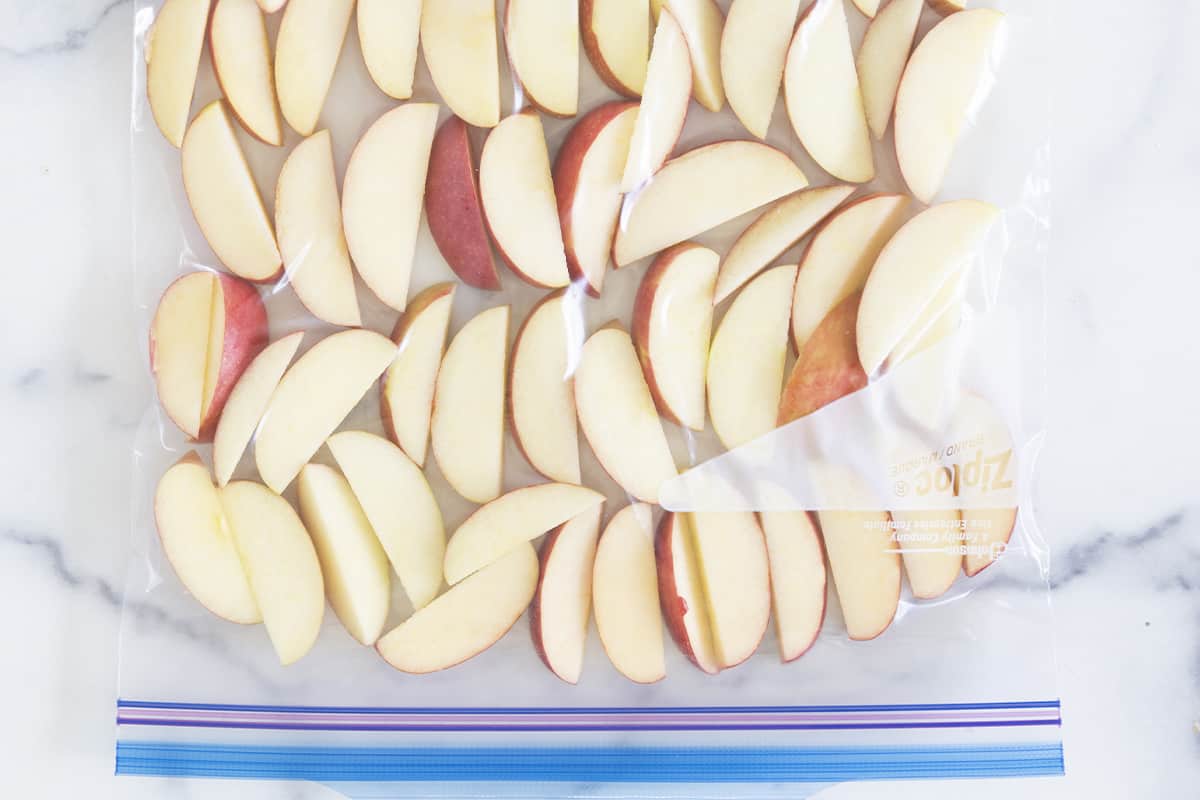
How to Freeze Apples
Whenever I slice up apples and my kids don’t eat them all, or I have apples that need to be used, but I don’t have time to use them in the moment, I freeze them. This is a quick and easy method that preserves the fruit to use another day and help avoid waste and maximize the food dollars I’ve already spent.
You can use them in Apple Smoothies or to make Cinnamon Apples.
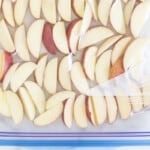
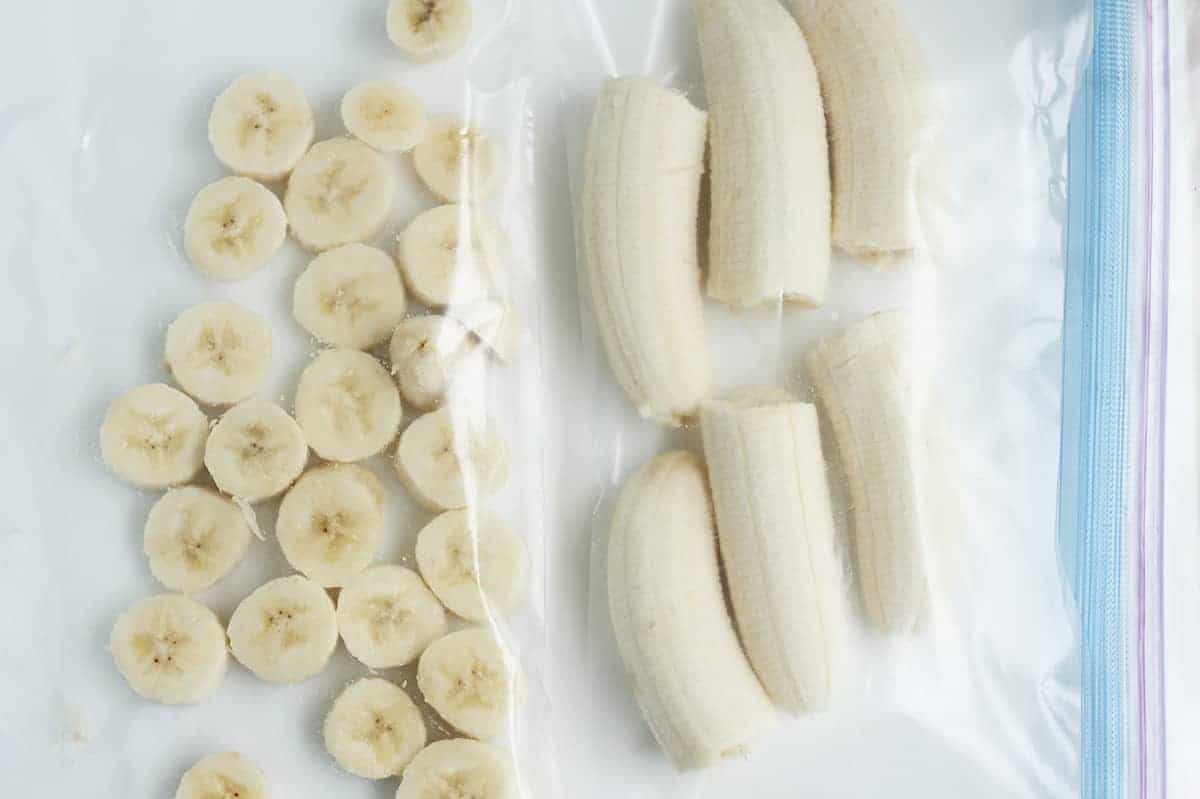
How to Freeze Bananas
Learn how to freeze bananas the easiest way possible to save those overripe bananas for future banana smoothies, banana muffins (just thaw them, drain, and mash), banana oatmeal, baked goods like banana bread, and more.
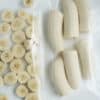
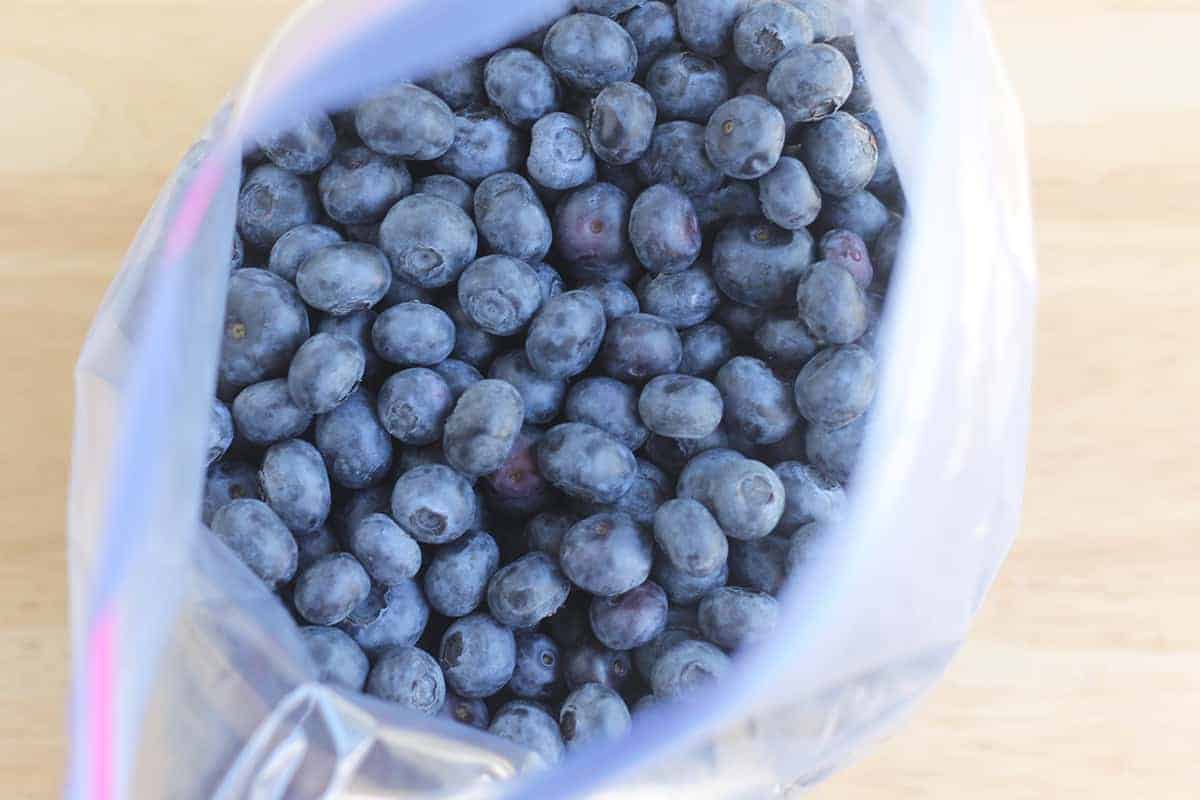
How to Freeze Blueberries
Learn the easiest way to freeze blueberries to use later in Mini Blueberry Muffins, Blueberry Banana Smoothies, Blueberry Chia Jam, oatmeal, and more. Save money by stocking up when the berries are on sale and preserve the best flavor!
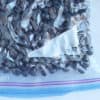
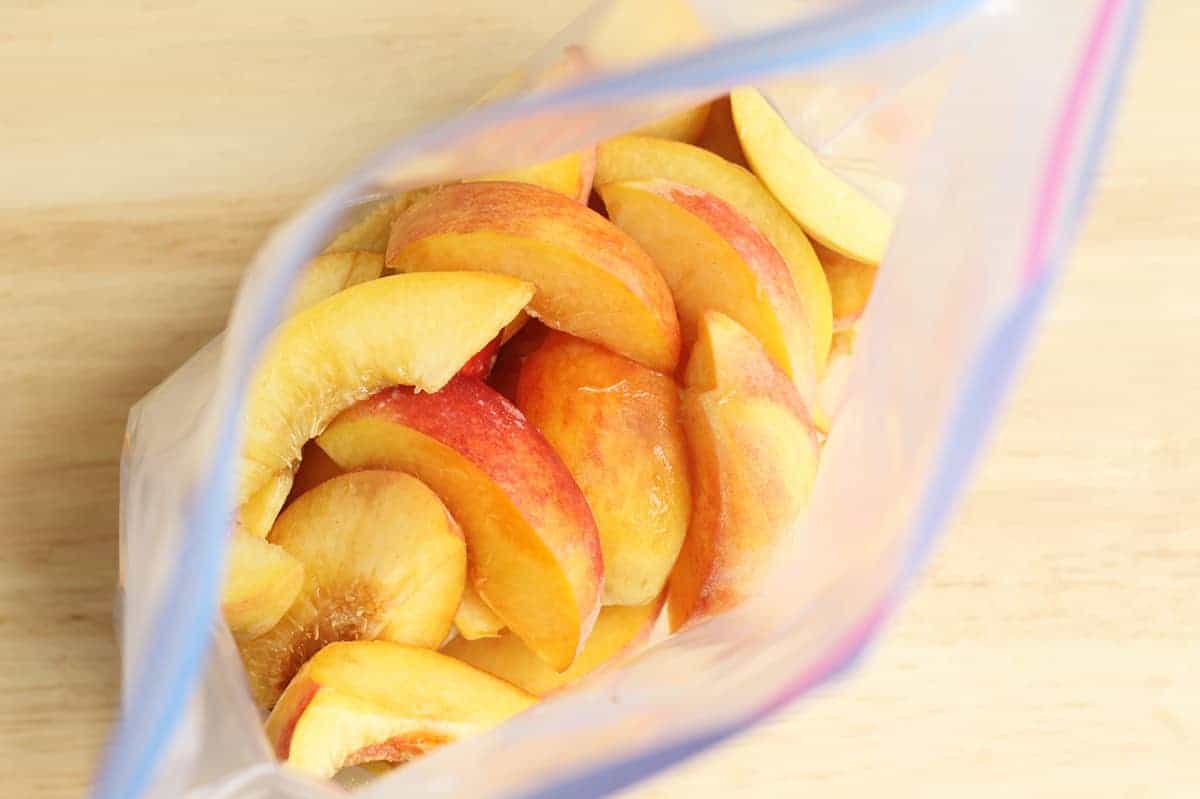
How to Freeze Peaches
Learn the easiest way to freeze in-season peaches to use later in peach smoothies, baked goods like Peach Muffins, Peach Sauce, oatmeal, and more. It’s an easy way to save money, have fruit with the best flavor, and have a freezer stocked with easy-to-use fruit!
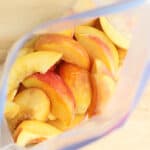
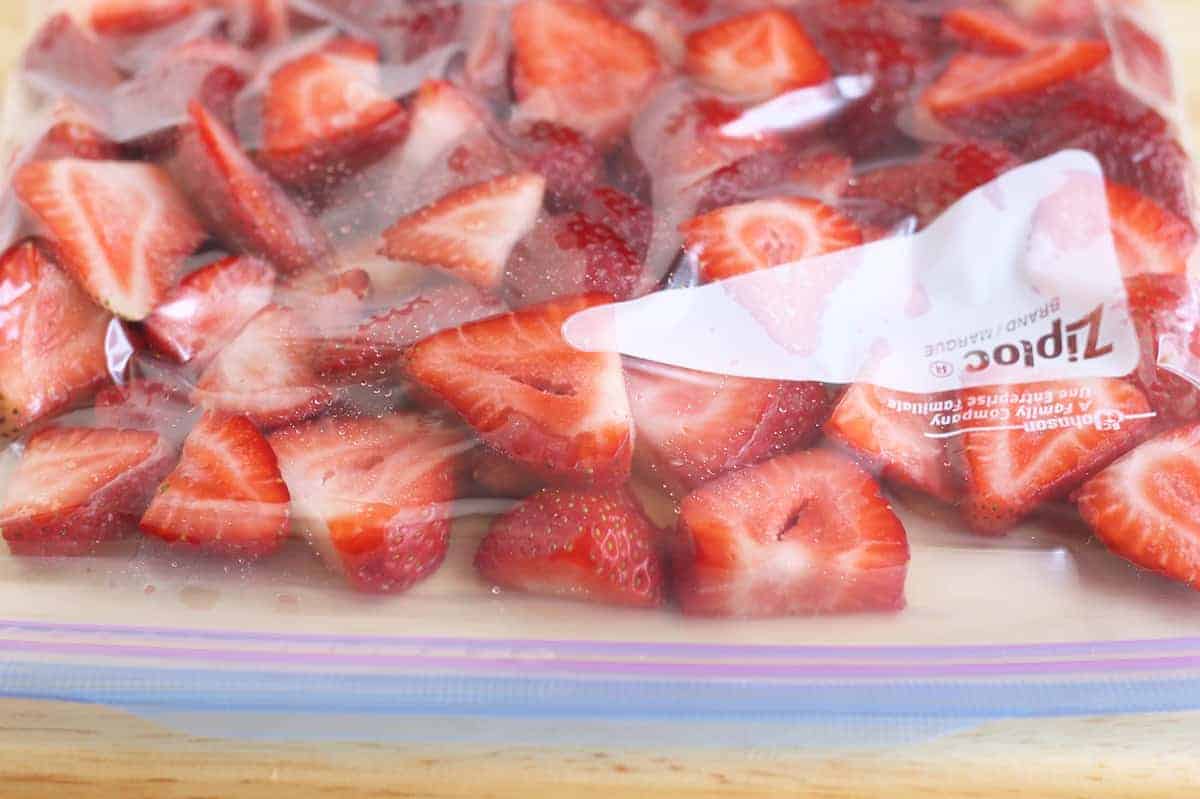
How to Freeze Strawberries
Make the most of a sale or freshly picked berries whenever you can by stashing them into the freezer. Learn how to freeze strawberries with about 5 minutes of work to preserve your berries for Strawberry Smoothies, Strawberry Puree, Strawberry Muffins, Strawberry Banana Bread, or any other favorite recipe.
If you plan to use strawberries in baked goods, dice them before you freezer them so you can stir them into the batter frozen.

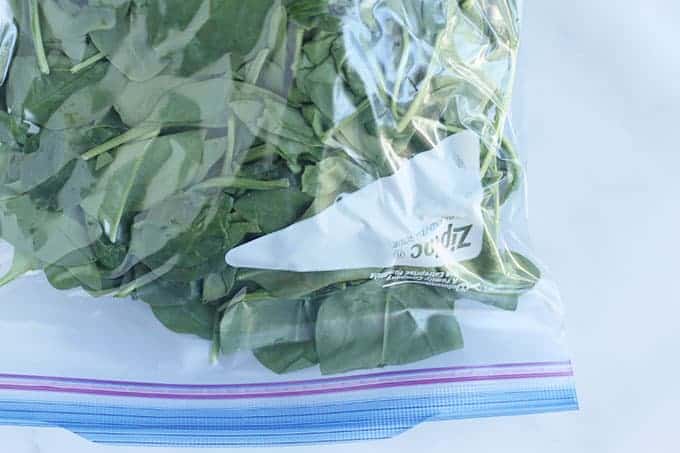
How to Freeze Spinach
Learn the easiest way to freeze fresh spinach to prevent food waste—and use later in smoothies, baked goods like Spinach Muffins, and easy meals!
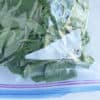
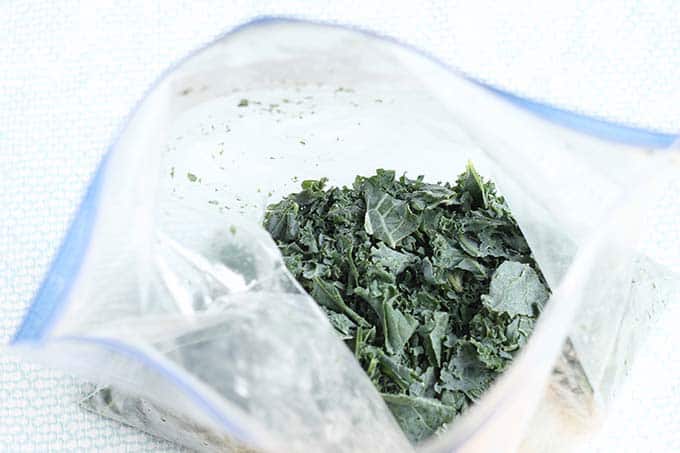
How to Freeze Kale
Learning how to freeze kale and greens for Greens Smoothies for Kids, muffins, soups, and more can be a total game-changer. It not only prevents food waste, but it makes the greens taste…less “green”!

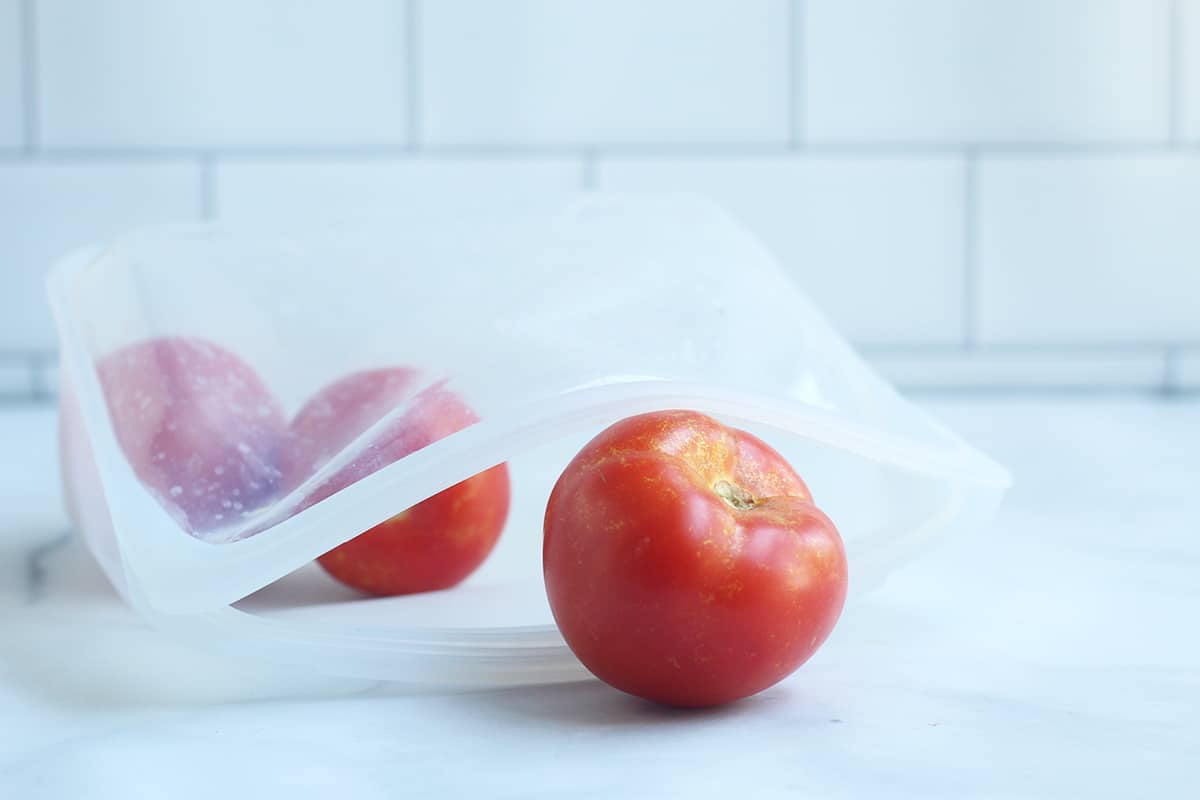
How to Freeze Tomatoes
Learn how to freeze tomatoes easily to ensure a surplus never goes to waste—and find easy ways to use them up (in Tomato Soup, Tomato Sauce from Fresh Tomatoes, or Marinara Sauce) whenever you have time down the road. Plus, no blanching!
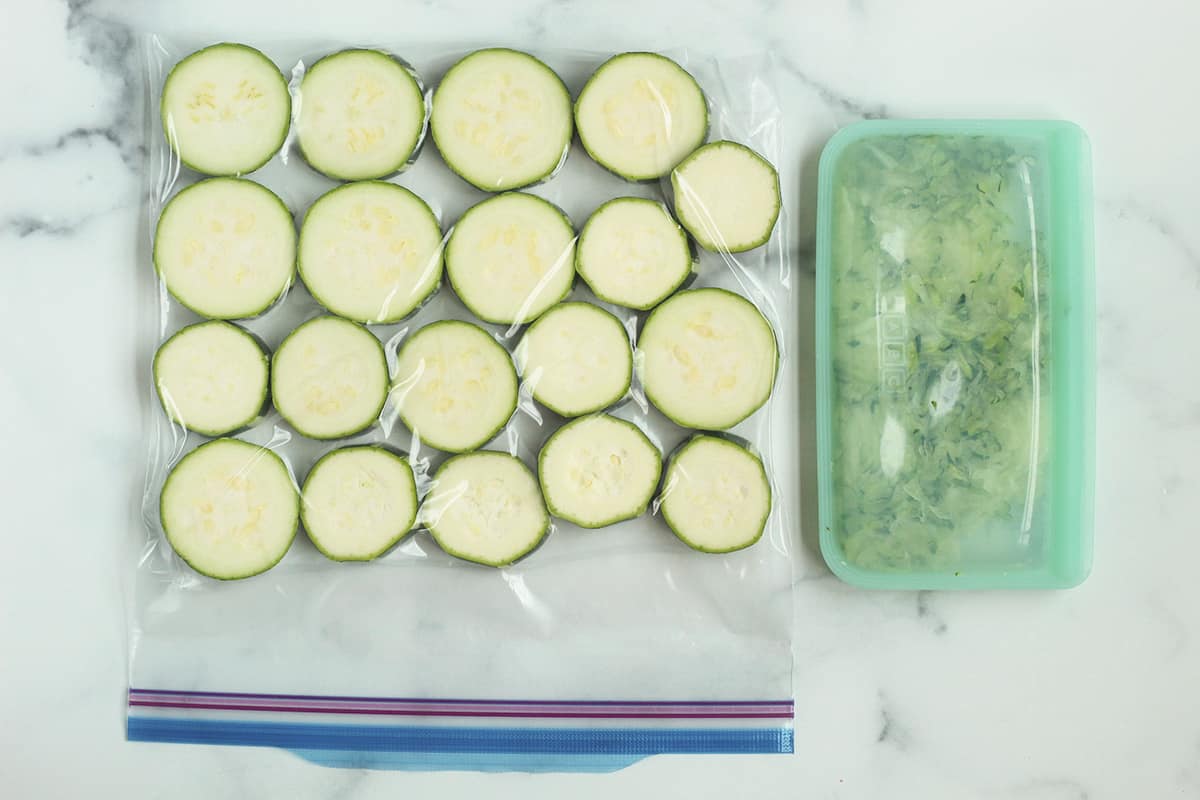
How to Freeze Zucchini
There are three basic ways to freeze zucchini that I share in this post. Each one varies in the amount of prep time involved and best uses after freezing.
We’ll cover how to freeze zucchini without cooking it, how to freeze shredded zucchini, and how to freeze blanched zucchini—and how to use each of them once frozen.
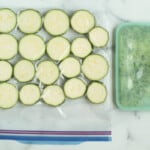
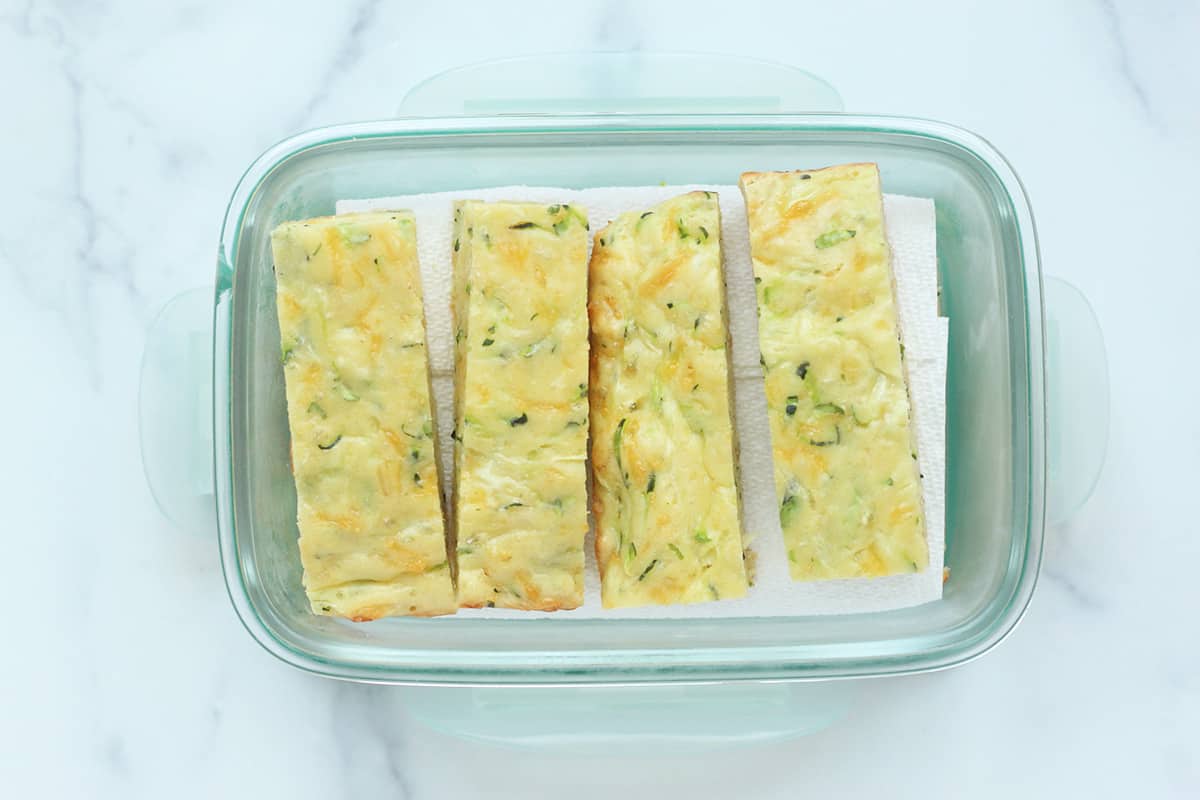
Tips for Freezing Prepared Food
You can freeze almost any prepared food, whether it’s cooked or baked, apart from salads. (Raw veggies will not thaw to the same texture.) Generally speaking, the process is as follows:
- Let the food cool if it was hot. (If heat is trapped in a container or bag it will release steam, which can turn to condensation. Those water drops can freeze onto the food, causing it to become icy.)
- Add it to a storage container or freezer bag. If using a freezer bag, try to add it in one layer and remove as much air as possible.
- Freeze.
For more specifics, see below.
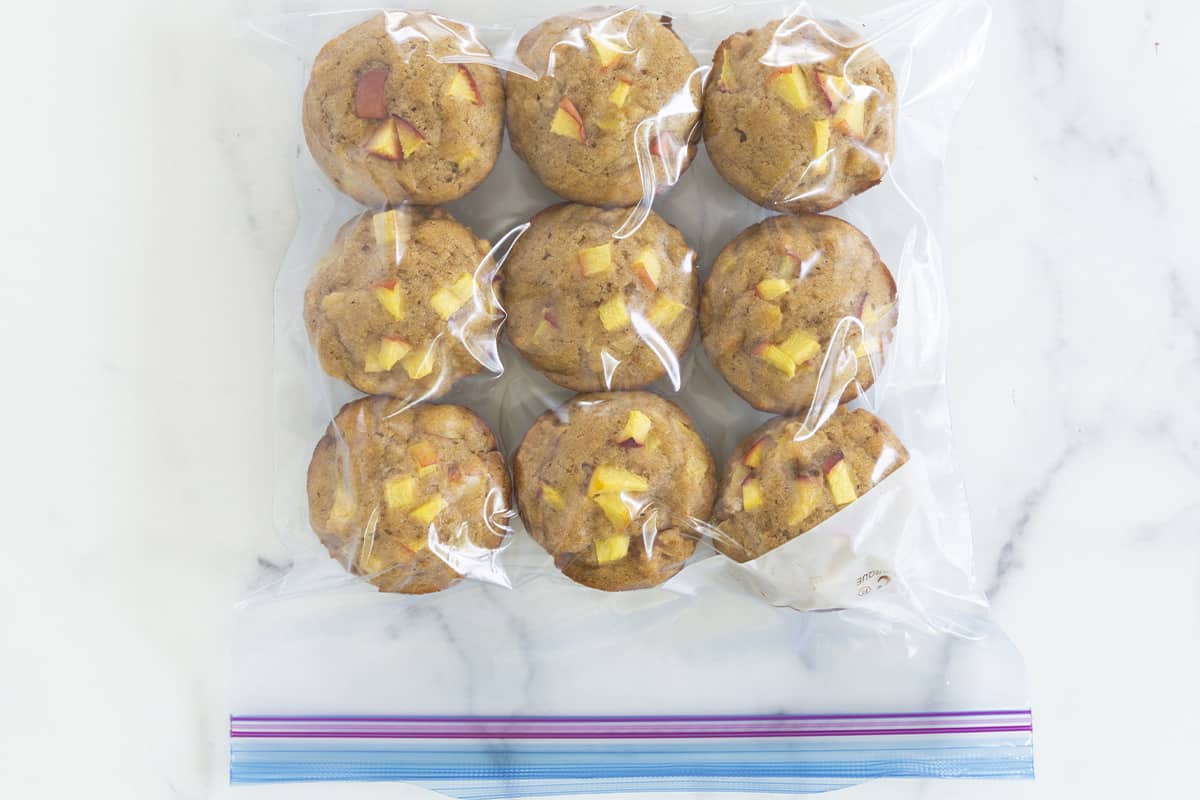
How to Freeze Muffins
Knowing how to freeze muffins is key to ensuring your family gets to eat all of those delish muffins you bake—whether you bake them ahead or just wind up with a few left over. This method is easy and keeps the muffins fresh in the freezer until you’re ready to enjoy them.
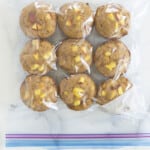
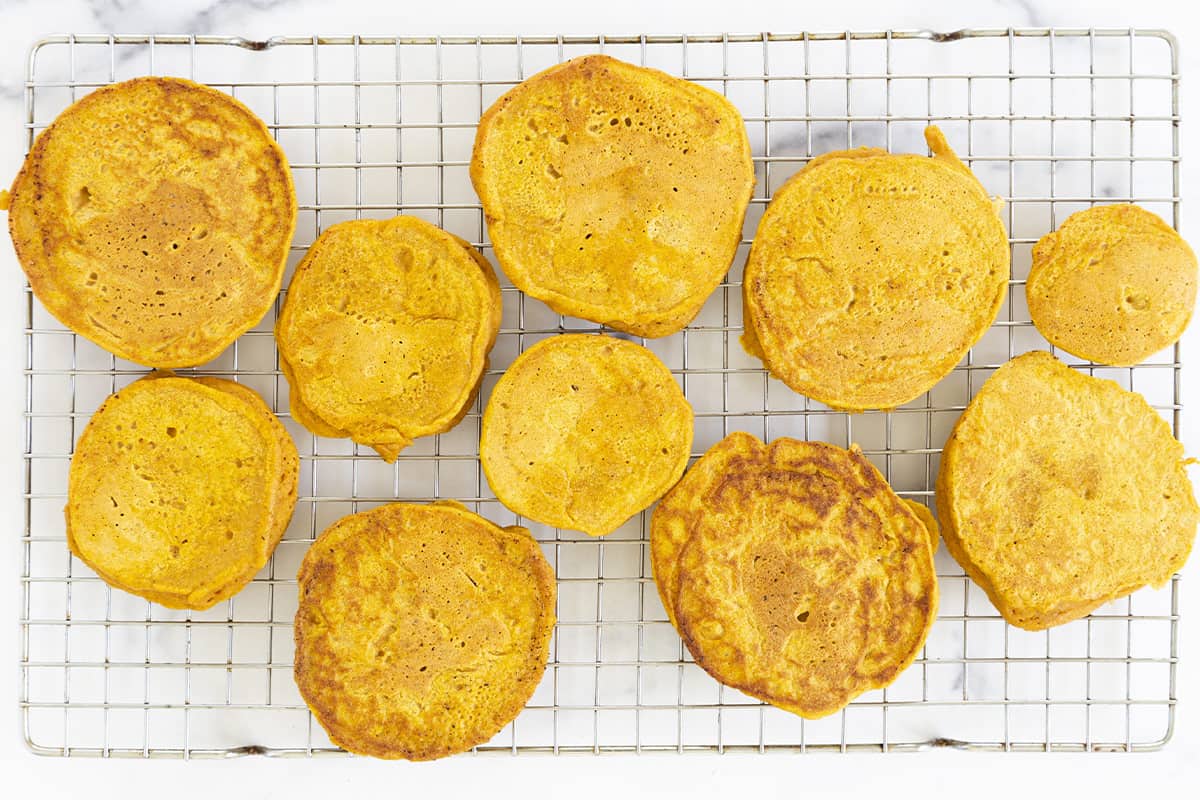
How to Freeze Pancakes
Learn how to freeze pancakes the easy way to ensure they are just as good out of the freezer as freshly made. I’ll share tips on the best storage bags and how to thaw and heat pancakes, too.
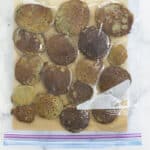
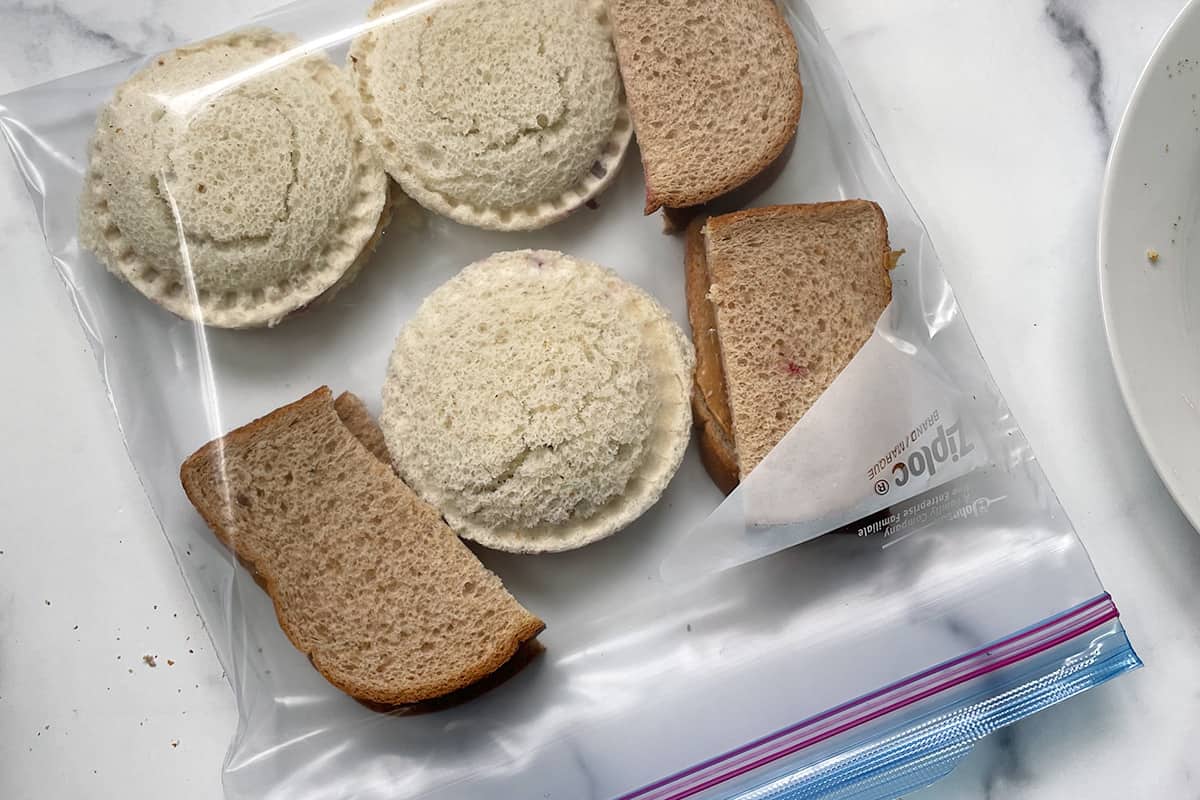
How to Freeze Sandwiches
One of my favorite meal-prep ideas is to freeze a batch of simple sandwiches for the kids so they’re ready to grab and go on busy mornings. They thaw really quickly in a kids bento box lunch and reduce the number of things to do when mealtime is busy.
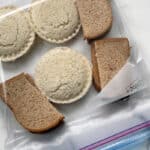
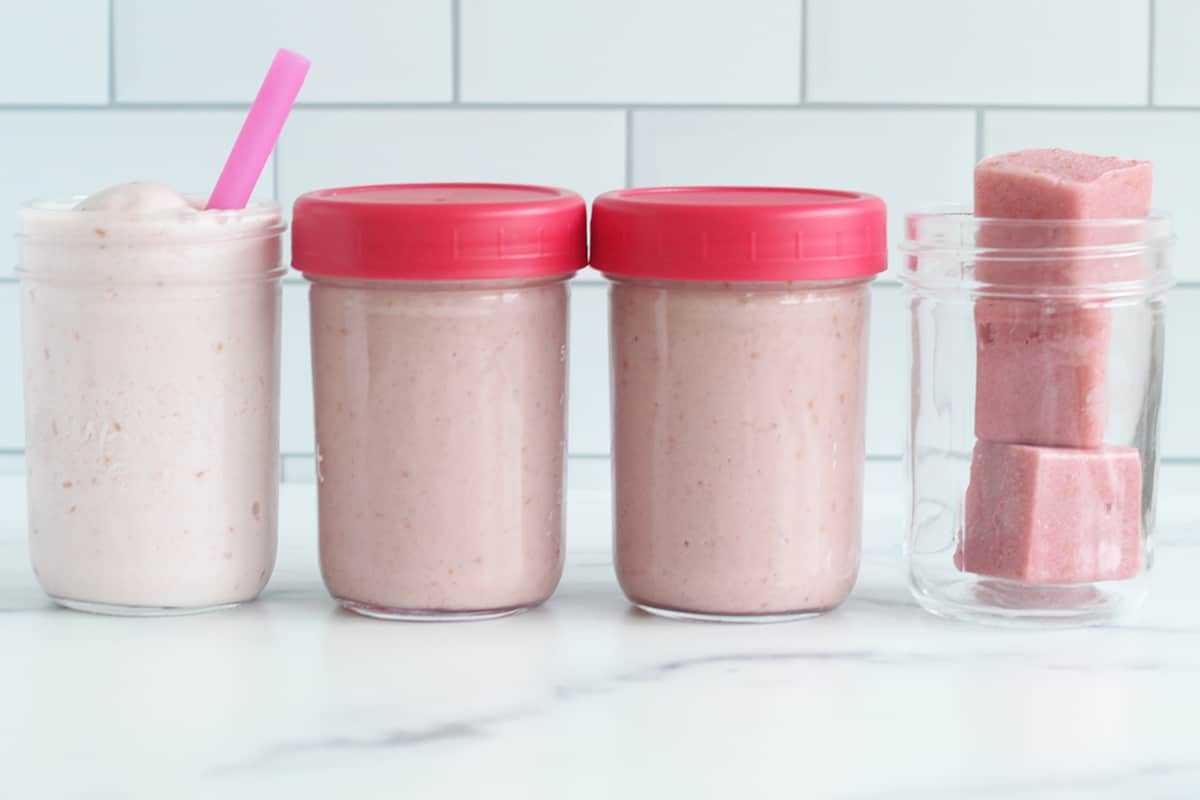
How to Freeze Smoothies
Learn how to meal-prep smoothies and store leftovers so you can reduce the work you need to do in the moment and waste less of what you make. I have three methods for you that work really well to make the most of your smoothies.
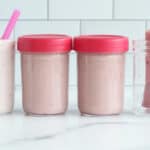
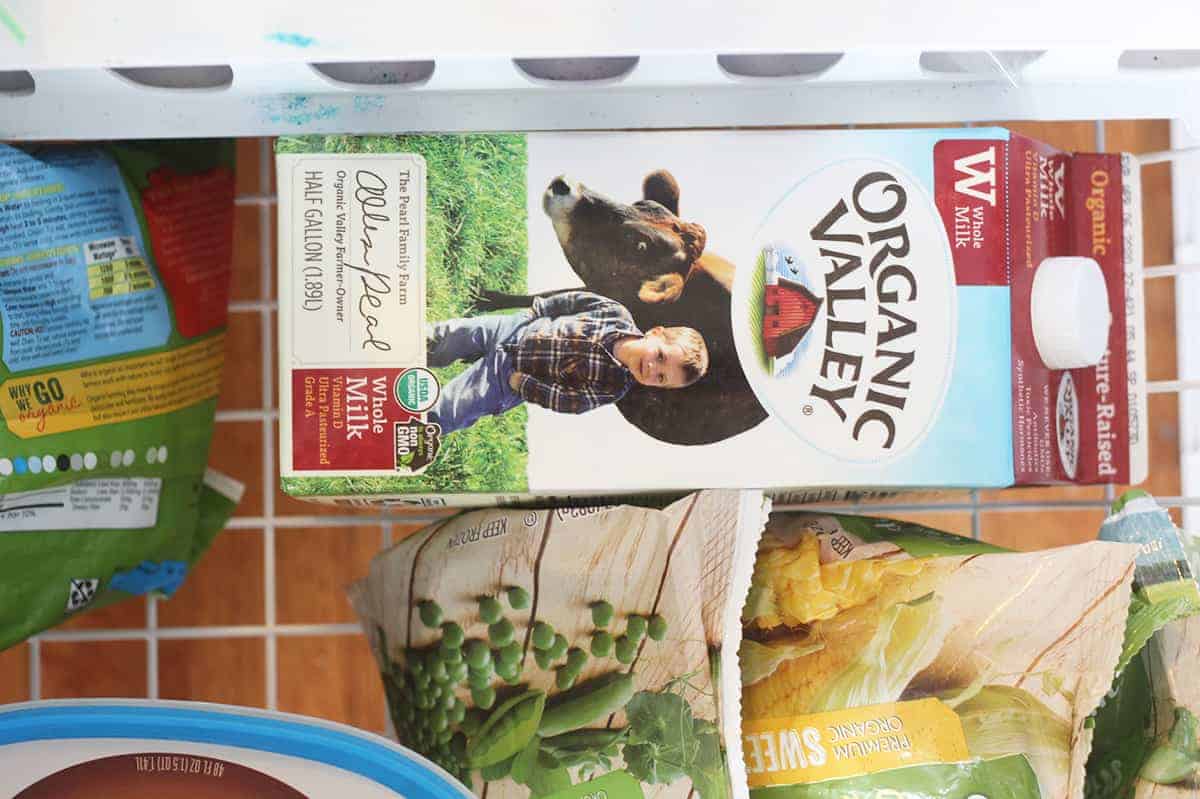
How to Freeze Milk
If you’re heading out of town and have some milk in the fridge you don’t want to go to waste or you’re looking to have a little extra on hand, these two simple ways to freeze milk will answer all of your questions about if you can do it—and exactly how!

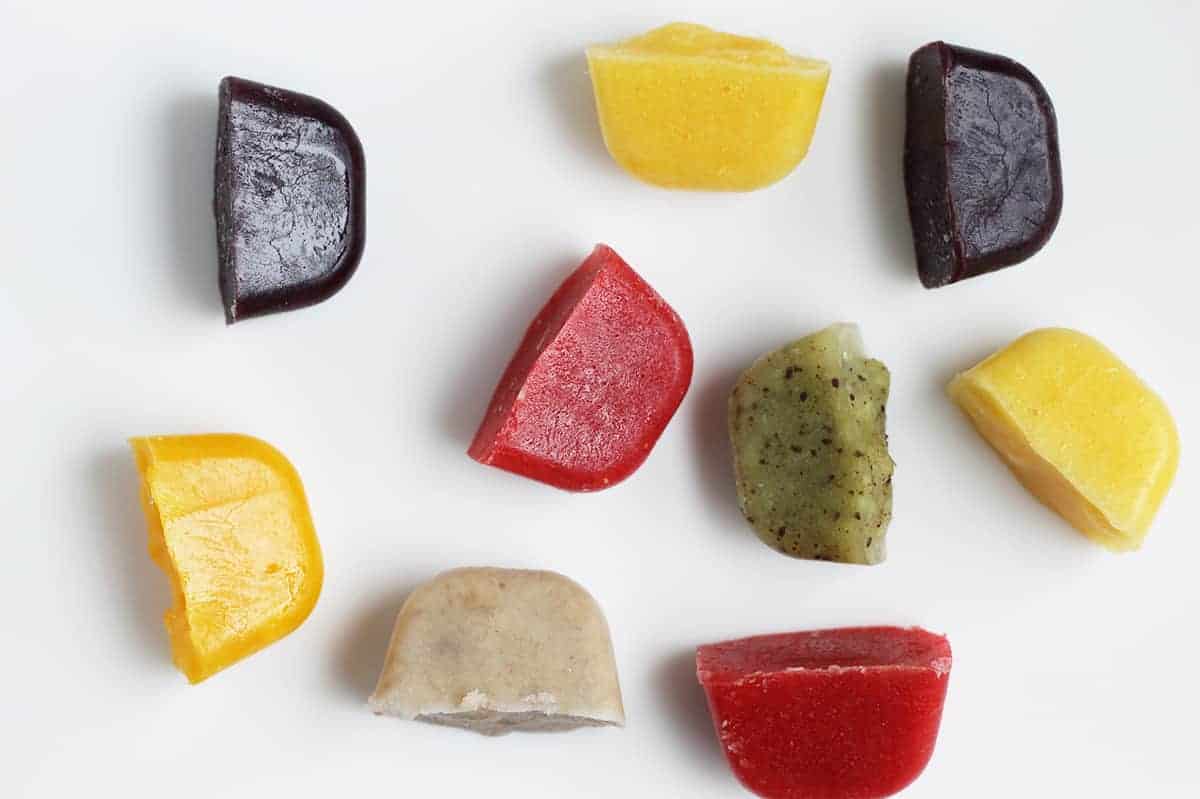
How to Freeze Baby Food
Going through the effort to make homemade baby food really only works if you have a good plan for how to store the food to ensure that it stays fresh and that baby has plenty of opportunities to enjoy it.
After making a LOT of baby food for my third kiddo to send with him to daycare, I got into a good routine of making and storing baby food purees
—especially in the freezer. Learn how to freeze and store baby food.
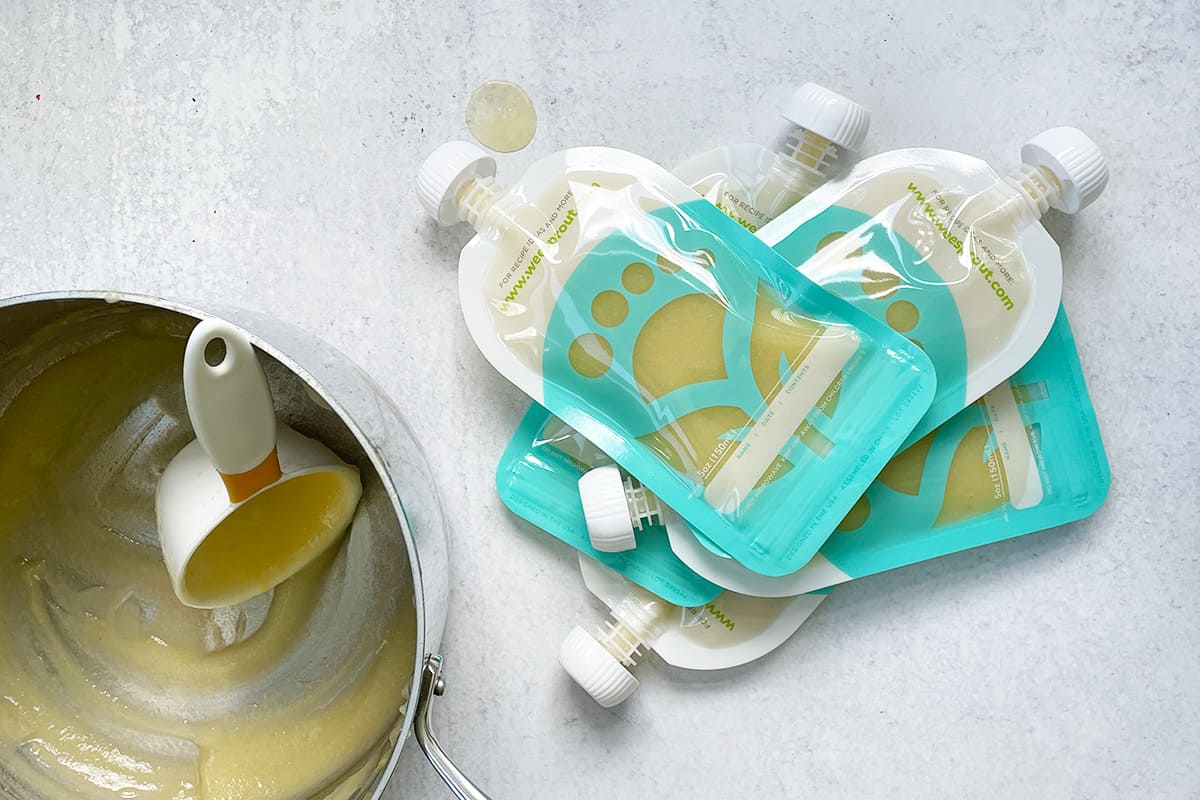
How to Freeze Pouches
You can freeze almost any baby food pouch (or toddler pouch) for future use if you want to batch-prep a few at a time or to store leftovers.
Simply place into the reusable pouch and seal according to the manufacturer’s directions. Freeze. To thaw, place frozen right into a lunch box (it will thaw in 2-3 hours if at room temperature) or overnight in the fridge.
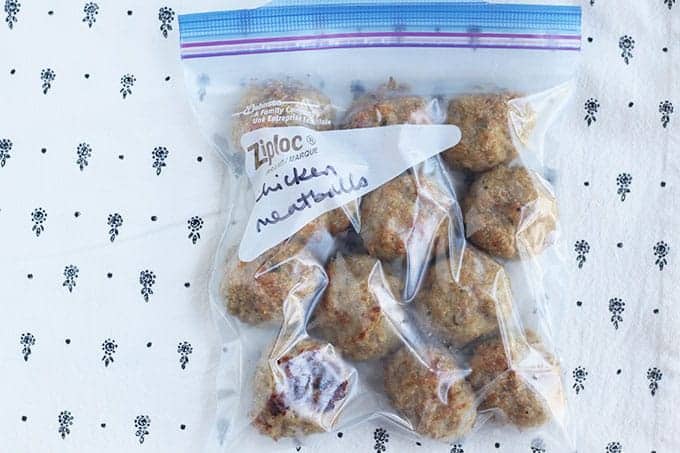
How to Thaw Frozen Food
For baked goods such as muffins or Breakfast Bars, you can thaw overnight in the fridge or at room temperature. Or thaw in 15-second increments on a heat-safe plate in the microwave. Do not overcook.
For healthy meatballs or other frozen meat, you can simmer in sauce (such as marinara sauce) or heat in a 375-degree-F oven for 4-6 minutes, or briefly in a 375-degree-F air fryer.
You can add frozen fruit directly to smoothies, oatmeal, or baked goods. Or turn frozen apples into Cinnamon Apples.
Best Tips for Success
- Let food cool before freezing to lower the amount of ice that may form in the container or bag.
- Remove as much air as possible from freezer bags using your hands or a straw.
- Freeze foods in freezer bags in one single layer—or use parchment paper or wax paper between layers—so the food doesn’t freeze together.
- Thaw prepared foods overnight in the fridge or in 15- to 30-second increments in the microwave.
- Freeze half batches of Breakfast Bars, Cereal Bars, Fig Bars, Granola Bars, Energy Bites, Vegetable Broth, and more for future weeks.
Related Recipes
Pregnancy Recipes
Best Freezer Meals for New Moms & Dads
Smoothie Recipes
How to Meal-Prep Smoothies and Store Leftovers
I’d love to hear your feedback on this post, so please comment below to share.

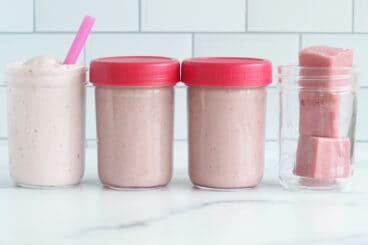
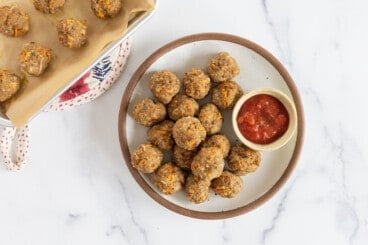

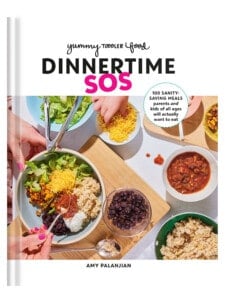
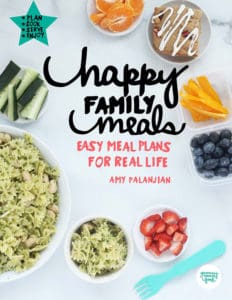

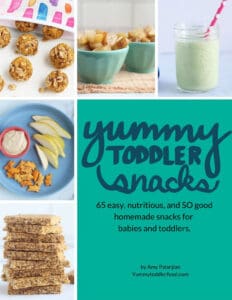















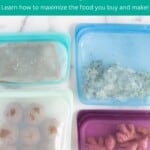
All comments are subject to our Terms of Use.